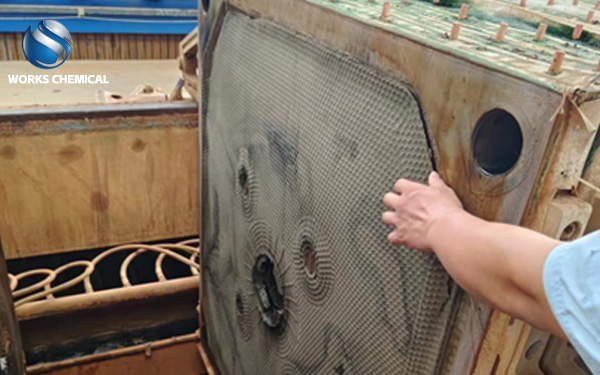
Sludge enhancers can replace traditional sludge pressing agents.

Sludge enhancers have demonstrated significant advantages in sludge treatment. Compared with traditional sludge pressing agents, they have the following characteristics:
The effect of reducing the moisture content of sludge is remarkable: Sludge enhancers can lower the moisture content of sludge to 35% to 55%, achieving deep dewatering of sludge, while traditional sludge pressing agents often fail to reach such an effect.
Enhance dewatering efficiency: Sludge enhancers can significantly improve the dewatering efficiency of sludge, shorten the dewatering cycle, and reduce treatment costs. Compared with traditional sludge pressing agents, it can greatly improve the sludge pressing efficiency and reduce the sludge pressing time.
Non-corrosive to equipment: Traditional mud pressing agents such as lime are prone to corrode equipment, clog filter cloths, and increase maintenance costs. The sludge enhancer does not require the addition of lime and is non-corrosive to the equipment, which is conducive to extending the service life of the equipment.
Good environmental benefits: The sludge treated with the sludge enhancer has a low moisture content and reduced volume, which is convenient for subsequent transportation, storage and disposal. Meanwhile, it does not introduce harmful substances and is conducive to the resource utilization of sludge, such as incineration, brick-making and composting, etc.
Significant economic benefits: The use of sludge enhancers can reduce treatment costs, including the cost of chemical agent usage, equipment operation costs, and subsequent disposal costs. At the same time, due to the improved dewatering efficiency, the amount of sludge to be treated can also be increased, thereby enhancing the production efficiency of enterprises.
In practical applications, sludge enhancers have been successfully used in various sludge treatment scenarios, such as municipal sewage treatment plants and industrial wastewater treatment facilities. It is usually used in combination with mechanical dewatering equipment (such as plate and frame filter presses), which can fully leverage its advantages and achieve efficient sludge treatment.